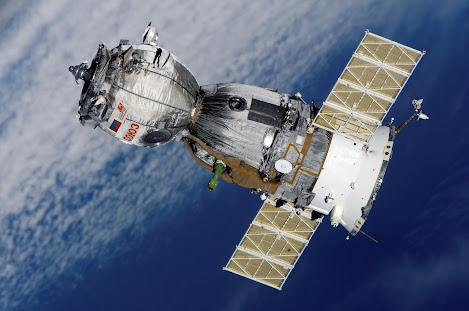What are the social issues of Pakistan?

SOCIAL ISSUES
Social problems are problems or challenges that affect individuals or groups in society. These issues can range from poverty and inequality to discrimination and human rights violations. They are often complex and deeply rooted in social structures, cultural norms, and historical factors.
These are just a few examples of the social issues facing Pakistan today. Addressing these issues requires a multi-sectoral approach, involving government, civil society, and communities, to create sustainable solutions that promote social justice and human rights.POVERTY
- Poverty is a significant problem in Pakistan, affecting a large section of the population. According to the latest estimates of the Pakistan Bureau of Statistics, about 24.3% of the population lives below the poverty line. The situation is particularly acute in rural areas where poverty rates are higher than in urban areas.
- Factors that contribute to poverty in Pakistan include a weak social protection system, limited access to healthcare, and environmental degradation. Climate change is also exacerbating the situation, with extreme weather events such as floods and droughts affecting the livelihoods of millions of people.
- The government of Pakistan has implemented various programs to reduce poverty, such as the Benazir Income Support Program, which provides cash transfers to poor families. However, the impact of these programs has been limited by problems such as corruption, insufficient funding, and lack of coordination between different ministries.
GENDER INEQUALITY

- Gender inequality is a major social issue in Pakistan that affects women and girls in different ways. Pakistani women face discrimination and marginalization in all areas of life, including education, employment, politics, and social and cultural norms.
- Women in Pakistan also face significant barriers to employment and economic participation. The female labor force participation rate is only 25% compared to 82% for men. Women who work often face discrimination and harassment in the workplace and are often paid less than men for the same work.
- Violence against women is also a major problem in Pakistan. Honor killings, acid attacks, and domestic violence are all too common and often carried out with impunity. The legal system is also biased against women, with discriminatory laws and weak enforcement mechanisms.
EDUCATION INEQUALITY
- Inequality in education is a social major problem in Pakistan with high rates of out-of-school children, especially girls. According to Pakistan Education Statistics 2019–2020, an estimated 22.8 million
- Girls in Pakistan are particularly affected by educational inequality, with cultural and social norms often limiting their access to education. Early marriage, gender discrimination, and the perception that girls do not need education are all factors that contribute to the low enrollment of girls.
RELIGIOUS EXTREMISM
- Religious extremism is a major social problem in Pakistan, with extremist groups promoting a radical and intolerant interpretation of Islam that often leads to violence and discrimination against minority groups, especially religious minorities.
- One of the key drivers of religious extremism in Pakistan is the influence of extremist groups, many of which operate with impunity in some parts of the country. These groups often profess a violent and intolerant ideology that contradicts the principles of democracy and human rights.
- The education system in Pakistan also plays a role in promoting religious extremism, with many schools and madrassas (religious schools) teaching a narrow and intolerant interpretation of Islam. This can lead to the radicalization of young people and contribute to the spread of extremist ideologies.
- Violence against minority groups, particularly religious minorities, is also a significant problem in Pakistan. Attacks on places of worship such as mosques and churches are all too common, as are targeted killings and kidnappings.
CHILD LABOUR
- Child labor is a major social problem in Pakistan, with an estimated 12.5 million children between the ages of 5 and 14 engaged in activities related to child labor, according to estimates by the International Labor Organization (ILO).
- Children are often employed in a range of hazardous and exploitative activities, including agriculture, mining, construction, and domestic work. Many of these activities are dangerous and expose children to health and safety risks and limit their access to education and other basic services.
- Poverty is a significant contributing factor to child labor in Pakistan, with many families relying on income generated by their children to survive. Lack of access to education and other basic services, as well as discrimination based on gender, ethnicity, and social status, also play a role.
- The government of Pakistan has taken some steps to address child labor, including passing laws prohibiting the employment of children in hazardous and exploitative activities. However, implementation and enforcement of these laws remain weak and child labor remains widespread.
CORRUPTION
- Corruption is a major social problem in Pakistan and has been identified as one of the main obstacles to the country's development. It is a pervasive problem that affects all aspects of life in Pakistan, from politics and government to business and civil society.
- Corruption is widespread in Pakistan and many public officials and politicians are involved in corrupt practices such as bribery, embezzlement, and nepotism. This has led to a culture of impunity where those in positions of power are often able to act with impunity without fear of repercussions.
- The impact of corruption in Pakistan is far-reaching, affecting economic development, public services, and social justice. It leads to the misallocation of resources, which in turn affects the quality of public services such as education and health. It also contributes to poverty and inequality as resources are diverted from those who need them most.
- Addressing corruption in Pakistan requires a comprehensive approach that includes both prevention and punishment. This includes strengthening the legal framework to ensure that corruption is properly defined and punished, and improving the accountability and transparency of public institutions.
WATER SCARCITY
- Water scarcity is a major social problem in Pakistan, which is one of the most water-stressed countries in the world. The country's water resources are under increasing pressure due to population growth, urbanization, and climate change. Pakistan relies heavily on its rivers and groundwater resources to support its agricultural sector, which forms a significant part of the country's economy.
- Inefficient irrigation practices and poor water management contribute to Pakistan's water scarcity problem. Many farmers still rely on flood irrigation, a highly inefficient method that results in significant water loss. In addition, groundwater is often overexploited, leading to a decline in the water table and saltwater intrusion into coastal areas.
- As a result of these challenges, Pakistan is facing a growing water crisis with significant implications for food security, public health, and economic development. The Government of Pakistan has launched several initiatives to address water scarcity, including the construction of new dams and reservoirs, the promotion of efficient irrigation techniques, and the implementation of water conservation measures.
HEALTHCARE ACCESS
- Access to healthcare is a major challenge in Pakistan, especially for the country's most vulnerable. While Pakistan has made significant progress in improving health outcomes in recent years, access to health services remains limited, particularly in rural areas.
- One of the main barriers to accessing healthcare in Pakistan is the lack of infrastructure and resources, including hospitals, clinics, and trained healthcare workers. Many health facilities are poorly equipped and understaffed, with limited capacity to provide quality care. In addition, healthcare costs can be prohibitively expensive for many people, especially those living in poverty.
- To address these issues, the Pakistani government has launched several initiatives to improve access to health care, including establishing new health facilities and training more health workers. The government has also implemented several programs to provide financial support to low-income families to access health care.
- In addition to government-led efforts, several NGOs and international organizations are working to improve access to healthcare in Pakistan. These organizations provide healthcare workers with medical supplies, equipment, and training, as well as financial support for vulnerable populations to access healthcare services.
HUMAN RIGHTS ABUSES
Pakistan has been accused of numerous human rights violations, including violations of freedom of expression, religious freedom, women's rights, and the rights of ethnic and religious minorities. The most pressing human rights issues in Pakistan include:
- Freedom of expression: Journalists and activists in Pakistan often face intimidation, harassment, and violence for speaking out against government policies or raising awareness of sensitive issues. This led to an atmosphere of fear and self-censorship.
- Religious Freedom: Members of religious minority groups in Pakistan, including Christians, Hindus, and Sikhs, face discrimination and persecution. Blasphemy laws are often used to target religious minorities, and mob violence against them is common.
- Women's Rights: Women in Pakistan face significant barriers to education, employment, and political participation. Violence against women is also a serious problem, including domestic violence, honor killings, and acid attacks.
- Extrajudicial killings: Pakistani security forces have been accused of extrajudicial killings, enforced disappearances, and torture in their efforts to fight terrorism and insurgency.
- Discrimination against ethnic and religious minorities: Ethnic and religious minorities in Pakistan, including Baloch, Pashtun, and Shia, face discrimination and violence. They are often politically and economically marginalized and suffer from insufficient access to basic services.
ENVIRONMENTAL DEGRADATION
Environmental degradation is a serious and major problem in Pakistan and the country faces several environmental challenges that threaten the health and well-being of its citizens as well as its natural ecosystems. Some of the major environmental problems in Pakistan include:
- Air Pollution: Pakistan has some of the most polluted cities in the world with high levels of air pollution causing respiratory disease and other health problems.
- Water Pollution: Water pollution is a major problem in Pakistan as industrial and agricultural wastes contaminate rivers and other water sources.
- Deforestation: Deforestation is a major problem in Pakistan as forests are cleared for agriculture, timber, and development. This has led to soil erosion, loss of biodiversity, and increased risk of natural disasters such as floods and landslides.
- Land degradation: Overgrazing, soil erosion, and improper land use practices have led to land degradation in many parts of Pakistan, making it difficult for farmers to grow crops and exacerbating the impact of natural disasters.
- Climate change: Pakistan is particularly vulnerable to the effects of climate change, including more frequent and severe heat waves, droughts, and floods.
These are just a few examples of the social issues facing Pakistan today. Addressing these issues requires a multi-sectoral approach, involving government, civil society, and communities, to create sustainable solutions that promote social justice and human rights.











Comments
Post a Comment